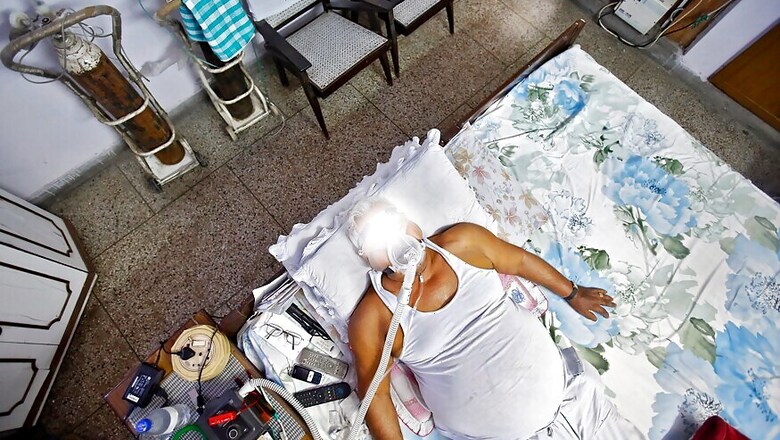
views
New Delhi: The Central government on Tuesday submitted before a Supreme Court Constitution bench of five judges that it has drafted a "Management of patients' with terminal illness-withdrawal of medical life support bill', and stated that 'living will' of a terminally ill patient seeking euthanasia will not be binding on doctors.
The court is now considering the prayer of an NGO, Common Cause, to declare that “every person should be able to execute a document like living will so that he or she is not subjected to unwanted medical treatment or unwanted life support system.”
The petitioners have taken it beyond terminally ill patients and that “every person has a right of self-determination and one has the right to pass that advanced directive.”
The bill as accessed by News18 was proposed by the Health Ministry in 2016 as "The Medical Treatment of Terminally Ill Patients (Protection of Patients and Medical Practitioners) Bill ("draft bill"), a model law proposed under the 241st report of the Law Commission of India.
The bill has called the will of a person to be or not be given medical treatment in case he or she falls terminally ill as "living will" or "advance medical directive" in the drafted bill. The bill proposes that any such will or a medical power of attorney will not be binding on any medical practitioner and cannot be executed by any patient since it would be considered void.
Additional Solicitor General P Narasimha, who was arguing the case on behalf of the government, said that the Centre's resistance to 'living will' is due to the law commission recommendation.
"It's not that we opposed living will only. The law commission had proposed in the 241st report that living will cannot be legal," said Narasimha.
Living will is a situation when a living person executes a will just like distributing property rights, and states that in case he ever falls terminally ill, then he should not be given medical care which would eventually lead to his death.
The term "passive euthanasia" used by the Supreme Court in its verdict on Aruna Shanbaug's case is defined as the withdrawal of medical treatment with the deliberate intention to hasten a terminally ill-patient's death.
The bill has clearly outlined a difference between a competent and an incompetent patient where it has been stated that if a person who is above 16 years of age and can understand consequence of his decision and makes an informed call about denying medical treatment, then such a decision would be binding on the doctor attending him and would eventually lead to passive euthanasia.
Though the bill does not mention the word 'passive euthanasia' but it states that 'life sustaining treatment' can be refused by a competent patient and such a decision will be binding on the doctor.
If the patient is above 16 years of age, then consent with regard to such a decision has to also be obtained from their parents or major spouse.
The arguments are slated to continue on Wednesday. The SC has also advised the Centre to constitute permanent medical board to decide medical cases on Passive Euthanasia.
NGO Common Cause speaking to News18 said that the government has not yet presented the bill in court but the government has stated that “they are ready with a bill on passive euthanasia, they are against living will of a person”.
“Our case is solely about living will or an advance medical authoritative direction to a medical practitioner and not a government bill on passive euthanasia. The court was hesitant about technicalities and procedures to be followed in case of living will so that it is no misused. Our argument was that once the living will is there and a board of doctors certify, then there should not be a problem with regard to living will. The certificate needs to be strong and robust,” said a lawyer working with the NGO Common Cause.




















Comments
0 comment